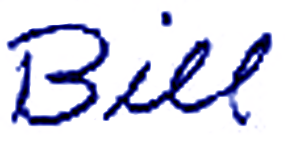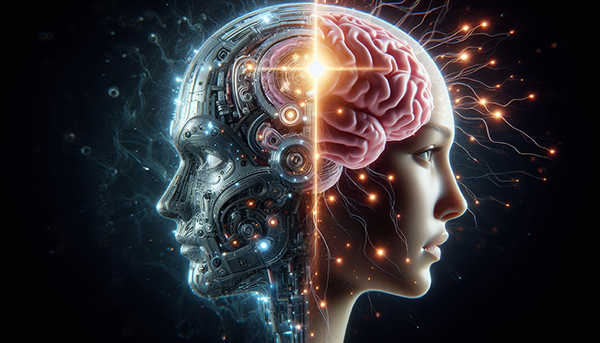Powerful Mind Part 20
Welcome to this week’s Bill Harvey Blog.
Updated July 18, 2025. Created July 21, 2023
Read Powerful Mind part 19 | See all 12 Powerful Mind Keys

The real you is the way you were awed and inspired by things when you were very young…
There can be a feeling of having lost one’s bearings when you’ve interrupted your ongoing persona, the consistent automatic process of carrying forward your own personal (necessarily somewhat infantile and childlike) coping patterns installed early in your life, without enough of the real you chipping in its own ideas back then.
At least before your new renaissance working with the material presented here, it was easy to get through the day, and now that you are reconsidering everything in a new light, you may be stumped in the moment how to react.
It’s not as simple as “automatic=bad” vs. “carefully reconsidered=good”. Sometimes, automatic means you are in the Flow state, doing everything perfectly because you are not hesitating and rethinking every little thing. At other times, automatic means you are trapped in the robot, living your life by rote, in Emergency Oversimplification Procedure (EOP). Sometimes, when you are thinking carefully you are in one of these two states or in the Observer state. You cannot reliably judge what state you are in based solely on whether you are in automatic or in thinking through every action you take. What this means on a practical level is that one needs to quickly discriminate between the things that one does automatically that work well, and those which do not work well. If you are reacting automatically and things are going smoothly and you feel no sense of dilemma or negativity, it is probably Flow state. If you have an impulse to do something which is habitual but something inside tickles you with a subtle fleeting warning hunch and you are paying enough attention to catch it and hold back the impulse at least momentarily, you are probably in Observer state.
It is normal when you are shifting out of consistency with your past accumulated coping habits, and you are being real with positivity and constructiveness, there will be times when you wonder how to be real when you don’t really know the true you.
You have memories of taking strong sides with one thing or another, and you are now a bit unmoored from those presumed certainties, which is a good thing when you are reconsidering everything. But for a while, you could find yourself without a clear enough concept of what you stand for, what you’re here for, what purpose you are called to serve in this life. All of that wondering and uncertainty is a good thing. Something to welcome in with gratitude. It means you have grown up from the practices automatically formed back when you knew ever so little. You are ready to redefine your compass and where you are going. We will talk much more about this when we get to Key #5; however, here in the midst of installing Key #3, the process starts of rediscovering your dream destiny.
The real you is the way you were awed and inspired by things when you were very young, and there were certain types of things that you loved doing, which are evidence of your true mission in this life, the gifts that you have to bring to the world.
Letting your memories go back as far as you can and looking for the most positive memories is a very pleasant way of getting the job done. Clues from your positive experiences will tell you who is the real you, what your heart desires for you to spend the rest of your life doing.
It’s normal once you’ve recaptured some of the essence of your calling that two things will happen that seem part of the good stuff but are actually relapses to EOP:
-
- You envision your success at doing your thing, and the trappings of success become more important to you than the joy of carrying out your métier. This is merely a more clandestine way of still being trapped in attachment to external outcomes, wealth, fame, respect, an overflow of aspirants for your affections, power, control, security, status, and social acceptance. Remember: The joy of the mission is enough in itself to make your life a happy one that adds to the happiness of others, even if there is scant evidence of your having significant external effects.
- You perceive that the new life you wish to make for yourself competes for time with the things that you have been doing, which are tangential or irrelevant or even at odds with the life you want to now live. This strikes you as a frustrating dilemma, bringing you down into EOP. Remember: You may not notice you are in EOP so make sure to recall that a sense of dilemma is a clear indication of EOP. You want to set that aside and consider things from a detached viewpoint that is not dependent on external things, i.e., you want to slip back into the Observer state.
From the Observer state, you can creatively solve the issues about how do you phase in your new life as the real you, and dial down the EOP life you have been living. This is a practical matter because we need money to live in the world as it is today and has been for all of recorded history (which goes back a very short time distance). If you yearn to spend your days doing X, you’ll have to start by using evenings and weekends for X, and it will take some time to begin to be able to make money in a new way, so again, the only way to win is to be independent of any dependencies on external outcomes, and simply enjoy the happiness of doing more of what you really want to do, even if it never gets anywhere in terms of public acclaim. This will be the beginnings of your becoming established in the real you.
Details to follow in the subsequent posts.
Love to all,
![]()




